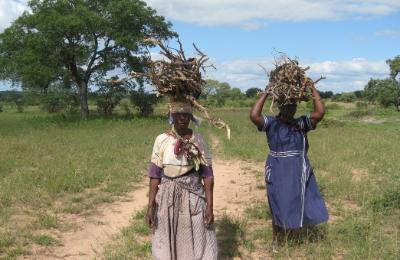Social & Environmental Determinants
-
Migration and Health Follow Up Study (MHFUS)
In South Africa, levels of internal migration are high as people engage in both permanent relocation as well as circular and temporary movement. Despite such prevalent mobility within the country, the impact of migration and urbanisation on health is not well understood.
MHFUS, nested within the Agincourt Health and Socio-Demographic Surveillance System platform, aims to understand the relationships between migration, urbanisation and health in an environment undergoing health, demographic and social transition. The research is focused on how migration and urbanisation change risk factors for health conditions and whether migration creates barriers to accessing treatment and continuity of health care. The MHFUS cohort includes rural residents (non-migrants) of the Agincourt study area, and internal migrants who leave the study area in rural Mpumalanga, usually to access employment in the Gauteng province. We followed an initial cohort of 3800 individuals aged 19–40 over 5 data collection waves.
The study, in its fifth wave, has retained 95% of the cohort interviewed in the first study wave in 2017. Longitudinal research on migrant health—including HIV, hypertension, mental health, and socioeconomic wellbeing—provides valuable insights for South African and global health policies.
- PI(s): Michael White, Carren Ginsburg
- Co-PIs: Mark Collinson, Xavier Gómez-Olivé, Stephen Tollman, Andrew Foster, Mark Lurie, Stephen McGarvey
- Project Manager: Sadson Harawa
- Funder: NIH (USA)
- Collaborating Institutions: Brown University (USA)
-
Sustainability in Communal Socio-Ecological Systems (SUCSES)

The SUCSES study aims to gain a deeper understanding of the dynamic interactions between rural households and the natural environment. There is particular emphasis on the consequences of these interactions for human well-being and ecological sustainability.
This study aims to:
- Understand why households depend on natural resources for their livelihoods.
- Assess how natural resources help households cope with economic and environmental challenges.
- Explore the connection between nature, resource use, and well-being (e.g., food security, child growth).
- Examine how environmental changes affect access to essential resources and overall well-being.
In order to achieve the above, the SUCSES study established a linked longitudinal livelihoods and environment surveillance system nested within the Agincourt Health and Demographic Surveillance System (HDSS). The SUCSES baseline household cohort of 590 households, sampled from across 12 villages, was established in 2010. A detailed household survey questionnaire is used to collect data on livelihood capital, activities, shocks, responses and outcomes. Child heights and weights are measured for all children 1-5 years old. To date, seven rounds of data have been collected (2010-2014, 2019, 2021).
- PI(s): Wayne Twine, Lori Hunter, Mark Collinson
- Project Manager: Farirai Rusere
- Funder: National Research Foundation, ACCESS (SA); World Agroforestry Centre (Kenya)
- Collaborating Institutions: University of Colorado Boulder (USA)
-
Households and Electricity
Early work that focuses on how households change over time enables us to have a longer time frame in which to examine trends, particularly household transitions, formations, and dissolutions.
Agincourt energy panel dataset
The Households and Electricity project, therefore, grappled with how to think about households longitudinally, using Agincourt as well as the National Income Dynamics Study data. This produced the ‘Agincourt energy panel’ dataset, which is available on DataFirst.
A major goal of this research was to uncover new ways to measure electrification and compare them with traditional methods. From the start, cross-checking data has been central—especially by analyzing Statistics SA census data alongside Agincourt HDSS data. The rural electrification program is based on the idea that electricity improves lives, but the reality is often more complex. This study dives deeper into understanding how—and to what extent—electrification truly benefits communities.
One strand of the research focuses on these mechanisms. Topics explored include using:
- Tracking appliance adoption over time: Using household data to model how quickly families adopted electrical appliances as electricity access expanded.
- Exploring electrification's impact on jobs: Analysing labour market trends to see how new access to electricity changed the kinds of work men and women do.
Co-PI(s): Martin Wittenburg, Mark Collinson
Co-investigators: Mercy Shoko, Takwanisa Machemedze, Taryn Dinkelman, Wayne Twine
Funder: ESRC/NRF (SA)
Collaborating Institutions: University of Cape Town DataFirst, SAPRIN, Statistics South Africa, and the Wits University School of Animal, Plant and Environmental Sciences (SA), University of Notre Dame (USA)


